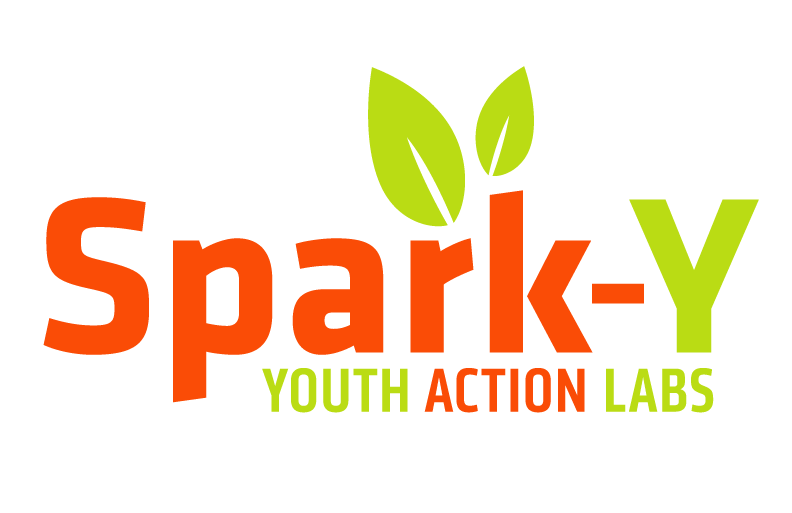Hello, my name is Daniel LeTexier,
a recent graduate from Toccoa Falls College with a double major in Secondary English Education and Bible & Theology. This summer I worked as an Education Apprentice at Spark-Y from June through early August.
Apprenticeship Overview
During my apprenticeship, I assisted in helping plan and execute programs that Spark-Y does in partnership with Freedom Schools, Northside STEM, and Kenwood Elementary. Assisting in these projects allowed me to further improve my skills as an educator. Educators have to create meaningful and engaging curricula that will be appealing and genuinely enriching to students. They also have to manage students and the classroom environment in order for students to properly grow! Thus in many respects, educating is like gardening; gardeners look to create an environment where plants can thrive, but as the season goes on they must continually adjust to new circumstances and plant needs. In the same way, teachers do their best to be well-prepared before instruction but also continually adjust how they teach as needed.
Green Garden Bakery
Beyond having an assisting role in these aforementioned projects, my primary assignment this summer was working on adapting and teaching a previously created urban farming certification program for Green Garden Bakery, a youth-led bakery and catering business.
One thing that I learned while teaching this course was the importance of managing expectations and adjusting to new circumstances.
Initially, the expectation for the program was that there would be ~20-25 students in attendance who had previously been a part of managing gardens at GGB (Green Garden Bakery). However, the class ended up being 3-4 individuals with little to no experience in gardening. This meant that instruction became geared toward providing an initial understanding of gardening. There was also less opportunity for immediate real-life connections and application of concepts to an outdoor garden; in response, we shifted our program to focus on projects and activities more suited to our student group; we used an indoor Tower Garden as our real-life example and application of skills we were learning about in our course.
Leading this class helped me develop and further appreciate consistent communication between individuals running a project, and being able to adjust the curriculum and its execution to make it most effective and appropriate given students’ abilities and previous experience. At multiple times throughout the course I had to communicate with stakeholders in the program to make adjustments to the class; this communication was vital in making the course a success.
Hands-On Application
Most of our hands-on programming was focused on growing microgreens and managing an aeroponics Tower Garden system; the student’s capstone project was creating a maintenance guide for the Tower Garden at GGB. Throughout the program students also learned about topics such as Integrated Pest Management, identifying healthy and unhealthy plants, and food safety practices. Doing this class was also personally enriching as I had the privilege to grow and crystallize my agronomic knowledge. During college, I had the privilege of working on a small-scale organic farm and this course helped me further appreciate all that was done there.
Lessons from Spark-Y
I am grateful for my experience as an apprentice at Spark-Y. Being an apprentice at Spark-Y helped me to appreciate the importance of having standard operating procedures for complex projects. Spark-Y does not do one single thing; they partner with a variety of schools and local organizations to help manage projects and educational opportunities related to sustainability and entrepreneurship. This means that each individual and each project team has a fairly high degree of freedom and responsibility in how they manage their projects. I am not a naturally organized person, which can sometimes lead me to feel incapable or uninterested in the logistical and management aspects of different jobs. However, this summer I learned to appreciate how Spark-Y uses a variety of digital tools (Slack, Google Drive, SOPs, project charters and reports, Google Calendar, etc.) to enable everyone on the Spark-Y team to easily collaborate and stay informed regarding the numerous exciting projects that are going on at Spark-Y. This operational infrastructure is what makes Spark-Y sustainable on an organizational level, and its practices inspire me to be more organized as an educator.
On a personal level, this summer I relied heavily on a simple digital to-do list and ongoing list of questions for my supervisor to make sure that I was not forgetting to do any important tasks; though this is a simple practice, without it I would have been unable to manage all the responsibilities I had been given.
Overall, working at Spark-Y has been a great opportunity for professional growth and it was exciting to be involved with projects that are helping build a more sustainable world by empowering young people to take action in meaningful ways, wherever they are.



